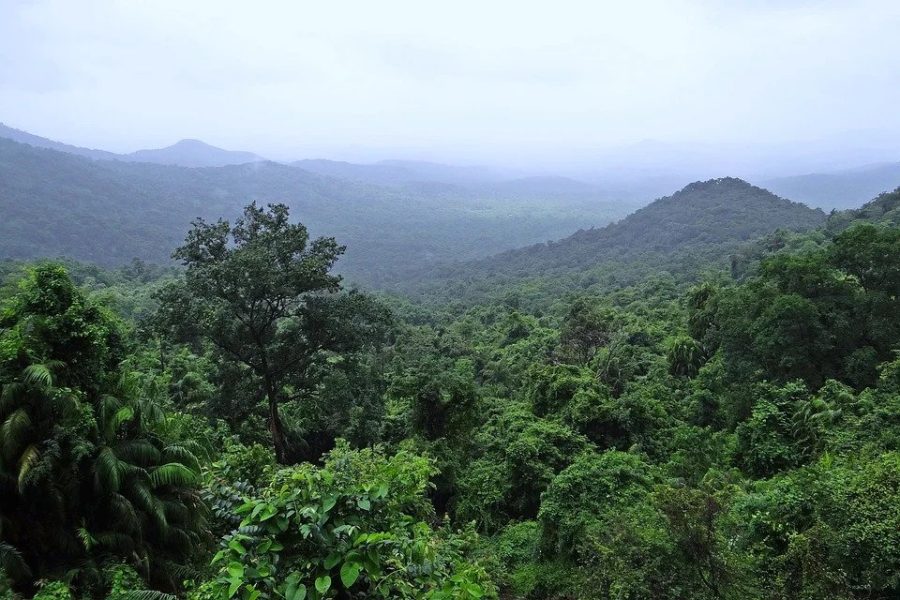
Why TN has renewed its fight against Neutrino observatory in Theni
MK Stalin has once again urged Prime Minister Modi to close the proposed Indian Neutrino Observatory in Theni district

Tamil Nadu Chief Minister M K Stalin has once cited environmental concerns to urge Prime Minister Narendra Modi to give up the proposed Indian Neutrino Observatory at Bodi West Hills in the state’s Theni district.
At first, the ambitious project was meant to be executed in the Nilgiris district of Tamil Nadu, but had to be moved out following strong protests from the locals there. The projected threat to the rich biodiversity of the region has primarily guided the Tamil Nadu government’s decision to stand up against the ambitious science proposal.
Stalin had made a similar appeal to Modi last June. Last month, the Tamil Nadu government filed an affidavit in the Supreme Court, categorically stating that it is against the proposed observatory.
What is the Neutrino project?
The Indian Neutrino Observatory (INO) is a particle physics research project, aimed at studying atmospheric neutrinos in a 1,200 meters deep cave under the INO Peak in Theni district. This project is expected to provide a precise measurement of neutrino mixing parameters. It is a multi-institute collaboration and one of the biggest experimental particle physics projects undertaken in India.
The project was originally meant to be completed in 2015 at an estimated cost of ₹1,500 crore. It has also been cleared by the Union Ministry of Environment and Forests.
When completed, the main magnetised iron calorimeter (ICAL) experiment will include the world’s largest magnet, four times larger than the 12,500-tonne magnet in the Compact Muon Solenoid detector at CERN in Geneva, Switzerland.
A neutral is a subatomic particle with a near-zero mass and half-integral spin. Atmospheric neutrinos can be analysed when solar radiation hits the earth’s atmosphere. Otherwise, neutrinos are tough to detect because they rarely interact with other forms of matter in the absence of electrical charge. For physicists, however, it is a matter of great interest and curiosity.
Also read: To stop species annihilation, protect forests, adopt regenerative agriculture
The excitement among physicists is understandable because neutrinos are generally produced in stars. However, on earth they are produced by particle accelerators and nuclear power plants.
Seven primary and 13 participatory research institutes, led by the Tata Institute of Fundamental Research (TIFR) and the Indian Institute of Mathematical Sciences (IIMSc), will operate the neutrino observatory on completion.
Environmental concerns
Conservationists are opposing the neutrino project on the grounds of environmental damage the science project may incur. An affidavit filed by the Tamil Nadu government in Supreme Court states that the project will impact the flora and fauna of the Periyar Tiger Reserve and Mathikettan Shola National Park in the Western Ghats.
The Stalin government upped its ante after the National Tiger Conservation Authority (NTCA) gave a no-objection certificate (NoC) to the project. The TN government backed Poovulagin Nanbargal, a Chennai-based NGO, which had knocked on the doors of the Supreme Court seeking a ban on the project. The State government filed an affidavit, which has turned the NTCA NoC invalid.
Besides the DMK, its alliance partner Marumalarchi DMK too has opposed the proposal.
Filliip to scientific reaarch
On the other hand, the BJP and Communist Party of India (Marxist) government in Kerala have backed the project, arguing that it would give a fillip to scientific research in the country.
“With the state government deciding not to oppose our demand in the Supreme Court, the project with huge environmental cost would remain non-materialised. We were able to evolve a large-scale consensus in Tamil Nadu against the project and that has convinced the state government to file this strong affidavit,” G Sundarrajan, who petitioned the Supreme Court on behalf of Poovulagin Nanbargal, said.
The Tamil Nadu government’s affidavit details out the possible environmental hazards if the Centre goes ahead with building the Indian Neutrino Observatory.
Also read: Want to save water? Know your water footprint first
The construction of the observatory will involve blasting hard and composite rock in the Western Ghats. The tunnelling work will involve excavation of 600,000 cubic metres of Charnockite rock from the hilly region at a depth of 1,000 m, which, according to Supriya Sahu, Tamil Nadu’s additional chief secretary for environment, climate change and forests, “will destroy the local ecology”.
The arguments against the project
The efforts aimed at conservation in the area will be hampered by movement of vehicles, people and the overall construction activity, the affidavit read.
“At a depth of 1,000 m, mountain rock would be under tremendous pressure and the vertical stress is expected to be greater than 270 kg per sq m. This will create problems like rock bust and roof collapse,” the affidavit stated.
Going ahead with the project also means endangering species of birds, fish, reptiles, mammals as well as endemic plants.
The neutrino project is expected to come up in the catchment area of several streams and watershed region that is vital to at least five districts of Tamil Nadu.
Taking up construction activities will disturb the migration pattern of wild animals as well.

